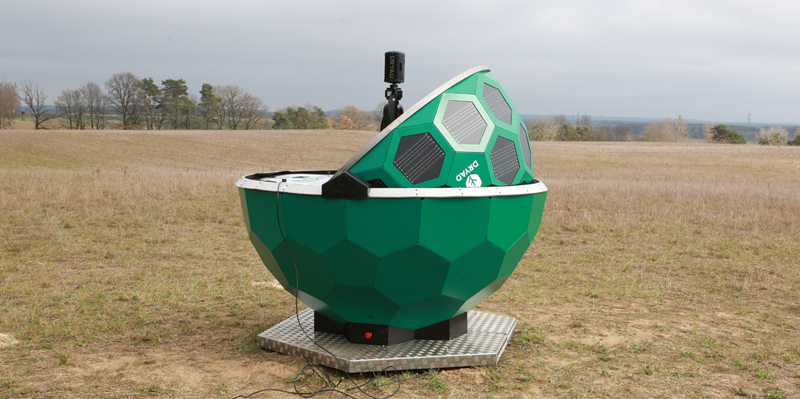Cape Town GEO Ministerial Declaration calls for strengthening and integrating Earth observation and prediction systems. The draft Declaration follows below.
We, the participants assembled at the Group on Earth Observations Ministerial Summit in Cape Town, South Africa, on 30 November 2007:Recognizing that nations are facing major environmental, social and economic challenges as a consequence of global change;Recognizing that sound policymaking for addressing the environment and sustainable development must be based on understanding, describing and predicting a complex and interdependent world, and therefore requires terrestrial, oceanic, air-borne, and space-based Earth observations, data assimilation techniques and Earth system modelling;Recalling that the 2002 World Summit on Sustainable Development (WSSD) stressed the importance of Earth observation systems for advancing sustainable development, particularly in developing countries;Recalling that the G8 Summit in Evian in 2003 committed to strengthen international cooperation on global observation and associated information systems and the G8 Summits in Gleneagles in 2005 and Heiligendamm in 2007 affirmed the role of the Global Earth Observation System of Systems (GEOSS);Recalling that the Group on Earth Observations was founded on the principle of using coordinated, comprehensive and sustained Earth observations to enhance human health, safety and welfare, alleviate human suffering including poverty, protect the global environment and achieve sustainable development;Reaffirming the outcomes of the Earth Observation Summits in Washington in 2003, Tokyo in 2004 and Brussels in 2005 that established the Group on Earth Observations (GEO) and endorsed the 10-Year Implementation Plan for building GEOSS;Recognizing that GEOSS will continue to build upon the interlinking and strengthening of existing and future observation, prediction and information systems developed and operated by Members and Participating Organizations, within the scope of the 10-Year Implementation Plan;Recognizing the importance of providing stable, reliable and long-term operations of Earth observation networks and systems within the framework of national policies and international obligations;Recognizing the important contribution GEOSS can make through collaboration with UN system bodies including in response to the needs of the United Nations Framework Convention on Climate Change (UNFCCC), the Convention on Biological Diversity (CBD), United Nations Convention on Combating Desertification (UNCCD), and other relevant agreements and processes, and the growing need to further enhance such contributions;Recognizing that GEOSS can contribute to the development of the United Nations Spatial Data Infrastructure (UNSDI);Recognizing the important contribution GEO can make through collaboration with the International Telecommunication Union to promote, by the appropriate alerting authorities, the implementation of the international standard for all-media public warning across all disaster and emergency situations;Reaffirming that GEO is addressing user needs focussed on multiple societal benefit areas;We note with satisfaction the numerous contributions and early achievements made by Members and Participating Organisations towards the GEOSS 10-Year Implementation Plan, as described in the GEO Report on Progress 2007. These contributions and early achievements are delivering multiple social, environmental and economic benefits such as facilitating access to observations, data and products, enhancing resilience to natural disasters, improving energy, water and resources management, improving monitoring and forecasting capabilities for climate, air quality and epidemics and facilitating the protection of ecosystems and the services they provide;In evolving from concept to action and implementation, we envision GEO providing a significant international framework to increase the benefits of national and regional investments in global Earth observation, prediction and information systems;We confirm our common view that:a) The sustained operation of terrestrial, oceanic, air-borne, and space-based observations networks is critical for informed decision making;b) Data interoperability is critical for the improvement and expansion of observational, modelling, data assimilation and prediction capabilities;c) Continued research and development activities and coherent planning are essential for future observation systems;d) Continued cooperation and dialogue will establish GEOSS as a powerful means to support informed decision making;e) Coordination at national, regional and global levels, continued investments, scientific and technological advances and innovative approaches to financing will be vital for upgrading and expanding Earth observations and building the capacity of individuals, institutions and systems, particularly in developing countries;We support the establishment of a process with the objective to reach a consensus on the implementation of the Data Sharing Principles for GEOSS to be presented to the next GEO Ministerial Summit. The success of GEOSS will depend on a commitment by all GEO partners to work together to ensure timely, global and open access to data and products;We commit to explore ways and means for the sustained operations of the shared architectural GEOSS components and related information infrastructure;We welcome the resolution of the World Radio Conference-07 on radio communication use for Earth observation applications and the support it provides for the international protection and long term availability of frequencies for terrestrial, oceanic, air-borne, and space-based observations, including passive measurements;We commit ourselves to working together to improve the interoperability of and access to observation and associated prediction and information systems towards the continued strengthening of GEOSS and the full realisation of the 10-Year Implementation Plan;We thank the Government of the Republic of South Africa for organizing and hosting today\'s Summit and thus advancing international cooperation on Earth observation systems;We resolve to meet again before the end of 2010 to review progress, conduct a mid-term assessment and give further guidance on the implementation of GEOSS.
For more information visit:
Subscribe to our newsletter
Stay updated on the latest technology, innovation product arrivals and exciting offers to your inbox.
Newsletter

